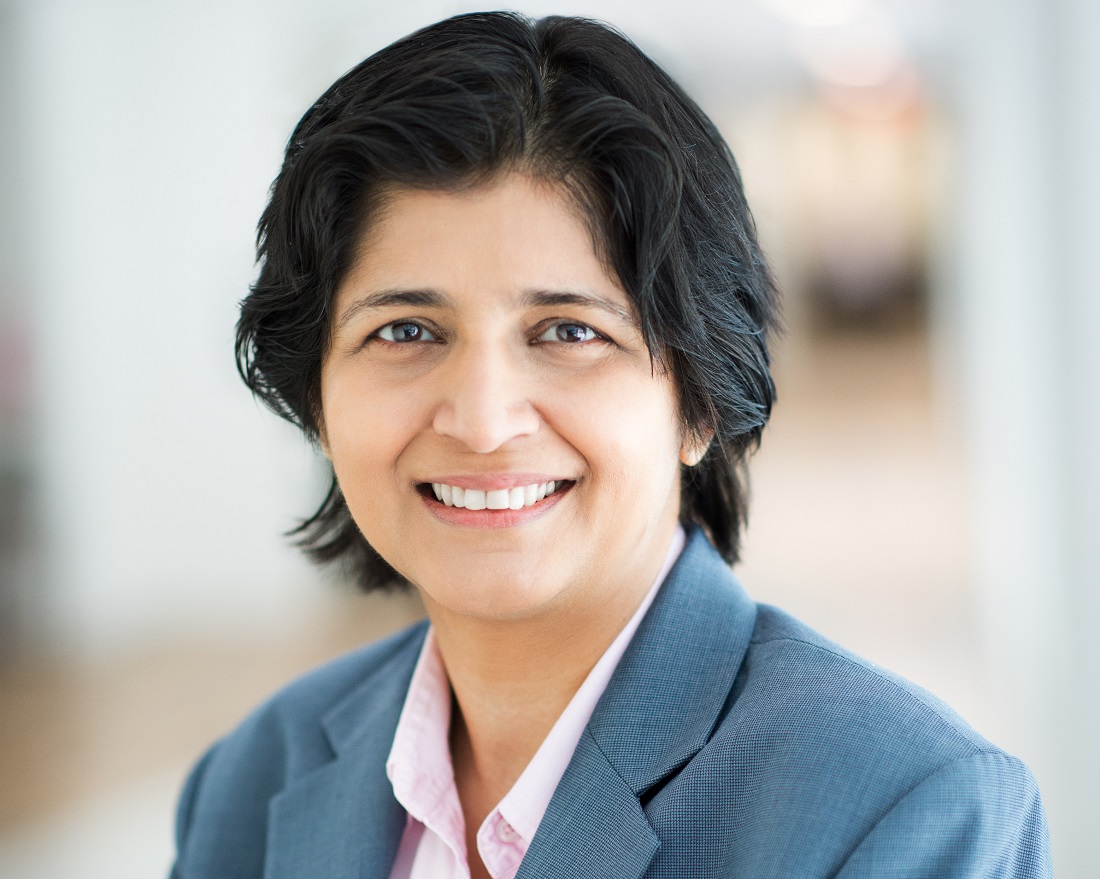If the GE-HAL collaboration proves successful, and technology remains securely shared, it will set a positive precedent for further collaborations between American and Indian companies.
Washington, DC
Prime Minister Narendra Modi’s inaugural State Visit to the United States has culminated in the next big steps in the India-US strategic partnership. In this free-wheeling conversation, Aparna Pande, a South Asia expert at Hudson Institute and well-known author based in Washington DC discusses the long-term impact of PM Modi’s visit for the future of India-US partnership, often called “the defining partnership of the 21st century.” Dr Pande is widely recognised for her numerous critically acclaimed books, including “Making India Great: The Promise of a Reluctant Global Power.” Excerpts:
Q: Prime Minister Modi’s inaugural State Visit to the US has generated a huge buzz. Commentators and experts have used an exhaustive range of adjectives to portray this visit. With all this hype, do you think PM Modi’s visit has lived up to soaring expectations?
A: The US-India joint statement reflects the diversity of the partnership and the detailed deliverables, from trade and commerce to space and skilled development, semi-conductors to jet engines, and clean energy to sustainable development. I believe this visit has lived up to expectations, encompassing both symbolic and substantive aspects. From a symbolic perspective, it holds significance as the third official State Visit by an Indian leader, coinciding with President Biden’s third State Visit as well. There was a massive display at the White House and a state dinner, Prime Minister Modi’s address to Congress, and various other diaspora events. But there’s a substantive element, and the three parts of the substantive element are, one, the really strong and deepening defence partnership. India and the US have never had a defence partnership. The defence relationship only dates back to 2005. The jet engine deal and the purchase of the Predator drones are huge for the India-US partnership.
Secondly, there is a crucial technology aspect to consider. The iCET (Indo-US Cooperation in Emerging Technologies) initiative, signed earlier this year in January, encompasses both civilian and defence technologies. Notably, startups from both nations will collaborate with each other in this regard. India has long expressed the view that the United States hesitates to share high-tech and advanced technology with them. However, this time around, the US is affirming that its private sector will indeed share such high-end technology with India, and they are committed to alleviating the challenges posed by export control regulations that have traditionally impeded this process.
And the third component revolves around the robust people-to-people dynamic. It is important to acknowledge that the Vice President herself has Indian heritage, and a significant portion of the Democratic base comprises Indian Americans. Indian Americans have consistently shown overwhelming support for the Democratic Party. Consequently, the current administration recognises the significance of Indian Americans, not just as Vice Presidents, senators, congressmen, mayors, or contributors to political campaigns, but also as voters and individuals who contribute to the broader diaspora. They hold prominent roles in universities, Silicon Valley, and numerous other sectors across the nation. Hence, this three-part dynamic is substantive, as it involves universities and the private sector contributing investments and technology to propel the iCET initiative forward.
Q: Speaking about access to technology, which is crucial for India’s ascent as a significant global player, the US has traditionally been highly protective of its most advanced and coveted technologies, often referred to as the “crown jewels.” However, there are indications that India might gain access to one such crown jewel: jet propulsion technology, through the jet engine deal. Despite the grandeur and glamour surrounding the visit, there remains a hint of scepticism regarding whether India will truly receive the authentic and substantial technology it desires.
A: India and the US do not possess a formal security alliance, nor are they security allies. Traditionally, the US shares technology primarily with its security allies, reserving the highest-end technologies for those relationships. What India is requesting from the United States is to share such high-end technology with a non-military ally, which is unprecedented in the American apparatus. Moreover, India has historically maintained close military ties with Russia, utilising Russian-made equipment extensively. From the US perspective, a concern may arise regarding the need for guarantees that the shared technology will not find its way to Russia or China, both being
Q: The original premise of the nuclear deal was to facilitate the rise of India as a major power. Do you think President Biden is committed to accelerating India’s emergence as a global player?
A: This belief that India’s rise is important for the United States and even American national interest actually goes back two-three decades. It goes back to President Clinton and every President since. Every President from President Clinton onwards has argued that India’s rise is important for the United States and it is a policy of strategic altruism, your rise is good for me irrespective of what your rise does. That India’s growth economically, militarily, its soft power, all of that is good for the United States. And so every administration has done it, Democratic or Republican and that will continue. President Biden’s administration is one of the most pro-India administrations actually today because they have gone all out to show that it is not because of China, it is not because of Russia, it is the desire for India to rise because India’s rise is good. The fact that it will help, that we share strategic concerns about China’s rise and aggressiveness or they are worried about countries attacking other countries and invading them and violating territorial integrity and sovereignty which matters to India is secondary to it. The India-US partnership is really important, and it’s good for the rest of the world. All the rest flows from that.
- Manish Chand is CEO, Cen think tank focused on global affairs and India Writes Network. He is Editor-in-Chief, India and the World, a journal

